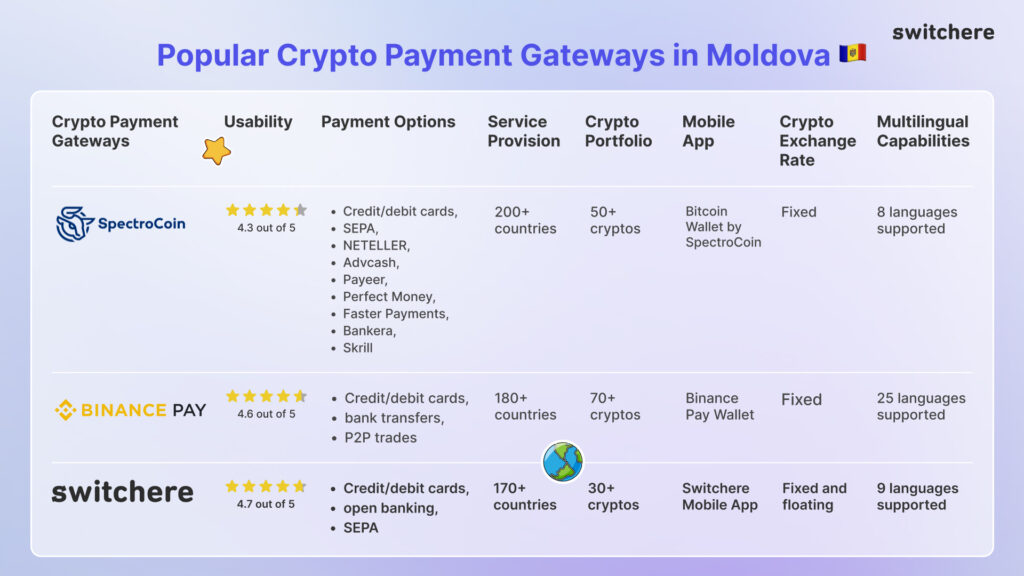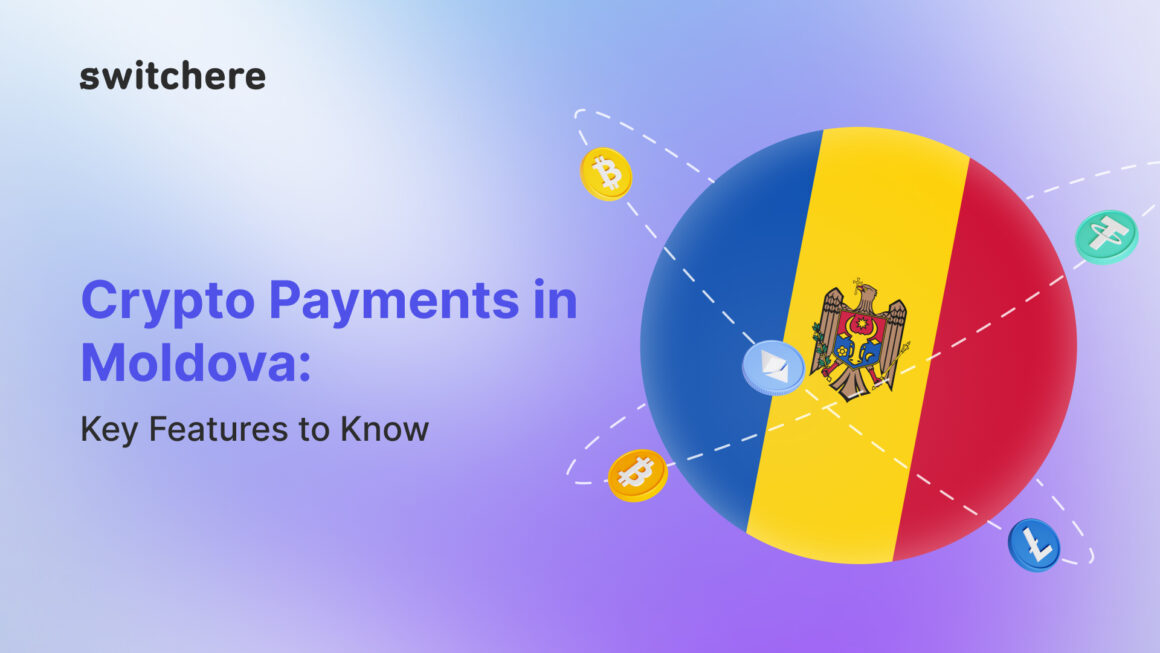Cryptocurrencies have gained significant traction worldwide, presenting both opportunities and challenges for economies across the globe. In the context of Moldova, a small Eastern European country, the status of cryptocurrencies and crypto payments has been a subject of interest and scrutiny. This article aims to provide a detailed analysis of the current state of cryptocurrencies in Moldova, focusing on the legal and regulatory frameworks governing their use, as well as the licensing requirements for businesses and crypto payment gateways.
Legal and Regulatory Framework
Moldova has taken steps to address the use of cryptocurrencies within its borders. The National Bank of Moldova (NBM), the country’s central bank, has been actively engaged in developing regulatory guidelines for the cryptocurrency sector. In 2019, the NBM issued a press release clarifying its stance on virtual assets, emphasizing the need for adequate consumer protection and the prevention of money laundering.
Moldova has yet to enact specific legislation tailored exclusively to cryptocurrencies, but it has incorporated virtual assets into its existing legal framework. The authorities have expressed the importance of fostering innovation while maintaining a balance between consumer protection and financial stability.
Crypto Licensing Requirements for Businesses
For businesses operating in the cryptocurrency space, Moldova has implemented licensing requirements to ensure a secure and regulated environment. The key licensing body for such activities is the National Commission for Financial Markets (NCFM). Entities involved in cryptocurrency exchanges, wallet services, and other related activities are required to obtain a license from the NCFM.
The licensing process typically involves a thorough examination of the business model, security measures, and compliance with Anti-Money Laundering (AML) and Know Your Customer (KYC) regulations. Additionally, licensees are expected to demonstrate robust cybersecurity protocols to safeguard user funds and sensitive information.
Popular Crypto Payment Gateways in Moldova
Crypto payment gateways play a crucial role in facilitating the acceptance of digital currencies in the mainstream economy. In Moldova, businesses seeking to integrate crypto payments into their operations must comply with the existing legal framework and acquire the necessary licenses from the NCFM.
The integration of crypto payment gateways is subject to stringent security standards, and businesses must implement measures to protect both consumers and the integrity of the financial system. Compliance with AML and KYC regulations is paramount, and businesses are encouraged to establish strong partnerships with financial institutions to ensure the seamless conversion of cryptocurrencies into traditional fiat currencies. Below you can find a selection of popular crypto payment gateways available in Moldova.

Switchere
It is reasonable to devote a few lines to Switchere and corresponding business provision for qualified partners. Switchere is a full-featured crypto exchange service provider that allows its client to purchase and sell crypto and offers seamless business integration for small, middle-size, and large-scale businesses in Europe (including Moldova), Asia, the Americas, Africa, and Australia. Concerning business integration methods, Switchere offers smart plugins, API and widget tools.
Challenges and Future Outlook
Despite the progress in establishing a regulatory framework, Moldova faces challenges in the cryptocurrency space. Issues such as potential fraud, market volatility, and the need for continuous adaptation to technological advancements remain areas of concern. The government is actively working to address these challenges and create an environment that fosters innovation while ensuring financial stability.
Looking ahead, Moldova has the opportunity to position itself as a regional hub for cryptocurrency and blockchain technology. Continued collaboration between government authorities, financial institutions, and the private sector will be crucial in shaping the future of cryptocurrencies in Moldova.
Conclusion
In conclusion, Moldova has made strides in regulating the use of cryptocurrencies within its borders, with a focus on consumer protection, AML, and KYC compliance. The licensing requirements set by the NCFM provide a structured framework for businesses and crypto payment gateways to operate securely. As Moldova navigates the dynamic landscape of digital assets, ongoing efforts to address challenges and promote innovation will be essential for the sustained growth of the cryptocurrency sector in the country.
